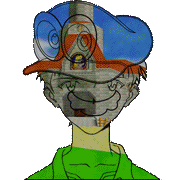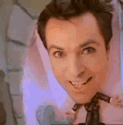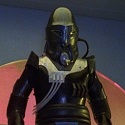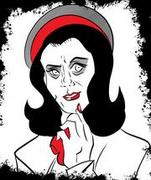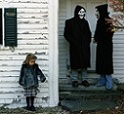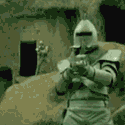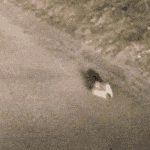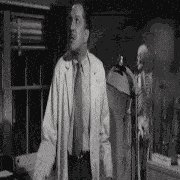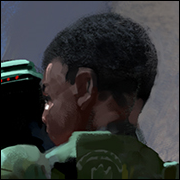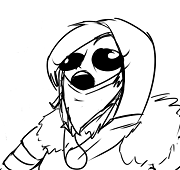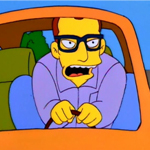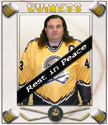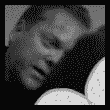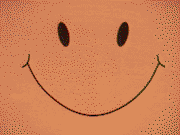|
Question Friend posted:Why does he call his movies joints
|
|
|
|

|
| # ? May 2, 2024 04:52 |
|
Question Friend posted:Why does he call his movies joints Cuz you are supposed to smoke em. Light it on fire and breathe it into your lungs brother.
|
|
|
|
I loved BlacKKKlansman, and I'm not really a Spike Lee fan; I don't hate him at all but I'm indifferent to his existence and watch his films on their own merits. I'll have to admit that I'm a huge Adam Driver fan and he's what got me interested, but as soon as the movie started I forgot all about his giant pecs and watched the movie for what it was. DC Murderverse posted:that ending was like a punch in the face for me. it really drove home the whole point of the movie, which is basically "even if there are good cops, the entire power structure of America is dedicated to protecting white power at almost any cost, so any good that may be done by individuals will be hamstrung by people above them who are desperately clinging to that power." and this doesn't mean we should stop doing these things, because there are individual benefits and lives that are affected, but the system is the true villain and it will take a lot more than one good cop to change things. Thanks so much for articulating that. I appreciate also that the romance story of the movie isn't resolved at the end. The tension between them, representing police and the black community, will never be resolved either.
|
|
|
|
DC Murderverse posted:I remember reading a comment somewhere on this website after the trailer came out that was a little concerned with how the trailer balanced the chants of "White Power" and "Black Power", like there was gonna be a message of "both sides are going too far", so I was really glad when in the movie they were balanced almost exactly the same, except the cutting back and forth was between the KKK watching and hooting and hollering at Birth of a Nation and spouting their racist lying bullshit, and the older black gentleman telling the story of watching a slow friend of his get railroaded by a false claim of rape and lynched. I find it weird that anyone would think Lee would ever attempt this message, given, y'know, his entire artistic output over the past four decades. The film itself uses those two sequences to very craftily dismantle the racist argument of "How come they can say Black Power but we can't have pride in being white?" It shows where the two slogans are born from: One as an empowering slogan for people who have been murdered and oppressed for centuries, and another from a group of unrepentant bigotry and a cult-like belief in white supremacy. And it does this without having to lecture the audience, or explain it. It removes the academic approach that people so often find themselves debating when this comes up and shows the emotional impact those phrases have.
|
|
|
|
Saw this again tonight with a buddy who wanted to catch it in theaters, and it plays just as strongly on a second viewing. What really struck me on the second viewing is how powerfully effective the last fifteen minutes or so are: there's this kind of dreamlike quality to Ron walking into the police station after stopping the bombing, where everyone is giving him accolades. This is followed by the comedown of the chief revealing that they're scuttling any further investigation into the KKK, and that the actual investigation itself has to be buried. . But then, you have this kind of crowd-pleasing moment with Ron ripping David Duke a new one over the phone while revealing he's black, which got a legit round of applause in the audience. Which is then followed immediately by the footage of Charlottesville, and all of the absolute horror that involves. It's a very sobering way to present the actual reality of social progress: it's called a "struggle" for a reason. Successes are few and far between, and there are always more obstacles waiting around the corner. There's no fistpump moment coming for what we're seeing in the world today; whatever victories are marked against white supremacy in the future will be accomplished only through arduous dedication to the cause and the work. The road to a better world is not measured in miles, but inches. But every inch is a powerful, world-changing event to be treasured unto itself.
|
|
|
|
TrixRabbi posted:I find it weird that anyone would think Lee would ever attempt this message, given, y'know, his entire artistic output over the past four decades. The film itself uses those two sequences to very craftily dismantle the racist argument of "How come they can say Black Power but we can't have pride in being white?" It shows where the two slogans are born from: One as an empowering slogan for people who have been murdered and oppressed for centuries, and another from a group of unrepentant bigotry and a cult-like belief in white supremacy. And it does this without having to lecture the audience, or explain it. It removes the academic approach that people so often find themselves debating when this comes up and shows the emotional impact those phrases have. What's interesting is that the film also expands this dichotomy in the dialectic of ethno-nationalism by having the student union activists very quickly adopting the slogan "all power to all the people." Contrast the organic relationship between black pride and authentic liberationist philosophy for all oppressed groups with, say, #AllLivesMatter.
|
|
|
|
Fart City posted:Saw this again tonight with a buddy who wanted to catch it in theaters, and it plays just as strongly on a second viewing. What really struck me on the second viewing is how powerfully effective the last fifteen minutes or so are: there's this kind of dreamlike quality to Ron walking into the police station after stopping the bombing, where everyone is giving him accolades. This is followed by the comedown of the chief revealing that they're scuttling any further investigation into the KKK, and that the actual investigation itself has to be buried. . But then, you have this kind of crowd-pleasing moment with Ron ripping David Duke a new one over the phone while revealing he's black, which got a legit round of applause in the audience. Which is then followed immediately by the footage of Charlottesville, and all of the absolute horror that involves. The movie sounds like sop for today's progressives who think they're like the black militants and civil rights campaigners of yesteryear for opposing Donald Trump or something. e: But I guess I should still see it. BravestOfTheLamps fucked around with this message at 08:24 on Aug 19, 2018 |
|
|
|
BravestOfTheLamps posted:The movie sounds like sop for today's progressives who think they're like the black militants and civil rights campaigners of yesteryear for opposing Donald Trump or something. e: But I guess I should still see it. That was definitely the crowd at the screening I went to. Other than some poor editing choices the movie is fantastic. Easily Spike Lees best movie in over a decade.
|
|
|
|
Spike Lee's Oldboy is honestly pretty good. When Scorsese did his remake he got an Oscar, why did Spike get so much hate?. Blackklansman is also great. His first movie, She's Gotta Have It, is awesome. As are Do the Right Thing, 25th Hour, Inside Man, Malcolm X.
|
|
|
|
BravestOfTheLamps posted:The movie sounds like sop for today's progressives who think they're like the black militants and civil rights campaigners of yesteryear for opposing Donald Trump or something. e: But I guess I should still see it. Yes, it would probably be a good idea to actually see the movie you want to have opinions about in a discussion.
|
|
|
|
BravestOfTheLamps posted:The movie sounds like sop for today's progressives who think they're like the black militants and civil rights campaigners of yesteryear for opposing Donald Trump or something. e: But I guess I should still see it. Yeah, maybe see the movie. Because that isn't its point. Though, on that topic, the film does end with IRL footage of the time a woman was murdered by a neo-Nazi for protesting against white supremacy. Tell me how hers is a less valid or substantive sacrifice than civil rights protesters of the 60's? The end of the movie works really well for me because of how bluntly it repudiates the scenes preceding it. Ron's story ends with this optimistic fever dream, where the Good Guy Cops win and sting their racist coworker and laugh in David Duke's face. But it's a purely symbolic victory...the Klan outside Ron's home serves as a reminder that the well is still poisoned. The Klan will simply replenish itself because our institutions enable and encourage them. Nothing is different today because the same systemic corruption that created David Duke has created the Steve Bannons and Richard Spencers and Alex Joneses of today.
|
|
|
|
Xealot posted:The end of the movie works really well for me because of how bluntly it repudiates the scenes preceding it. Ron's story ends with this optimistic fever dream, where the Good Guy Cops win and sting their racist coworker and laugh in David Duke's face. But it's a purely symbolic victory...the Klan outside Ron's home serves as a reminder that the well is still poisoned. The Klan will simply replenish itself because our institutions enable and encourage them. Nothing is different today because the same systemic corruption that created David Duke has created the Steve Bannons and Richard Spencers and Alex Joneses of today. Not only that, but the police as an instrument of power is inherently predisposed to perpetuating the status quo, which leads to an inherent conflict of interests with any party that wants to actively oppose white supremacist terrorism, within or without 'the system.'
|
|
|
|
DC Murderverse posted:Lee is pretty straightforward about his love for the Panthers in this movie, and the way it presents their ideals as self-love and black identity being beautiful, especially with all of those black faces watching Kwame Ture speak with reverence and awe. I really loved that. So elegantly done and beautifully lit. I don't think I've seen more effective audience reaction shots in a movie.
|
|
|
|
And we're not given any complementary perspective on why, for instance, Stallworth wanted to be a cop. It's merely this thing that he needs to say he's always wanted, but unfounded by any identifiable or formative moment. Heck, in that very scene with Ture when he's talking about being a kid watching Tarzan movies, it's clearly that part that hits Stallworth the hardest. We as the spectator are only able to interpret his motivations as part of a much larger process of the collective, psychological enslavement of blacks. Heck, it's almost like an anti-sunken place - it's Ture stirring the raising of Stallworth's consciousness, showing him where he is.
|
|
|
|
K. Waste posted:And we're not given any complementary perspective on why, for instance, Stallworth wanted to be a cop. It's merely this thing that he needs to say he's always wanted, but unfounded by any identifiable or formative moment. Heck, in that very scene with Ture when he's talking about being a kid watching Tarzan movies, it's clearly that part that hits Stallworth the hardest. We as the spectator are only able to interpret his motivations as part of a much larger process of the collective, psychological enslavement of blacks. Heck, it's almost like an anti-sunken place - it's Ture stirring the raising of Stallworth's consciousness, showing him where he is. I'd argue that most people don't have a formative moment and that in this case it's not that important to the story. What is important is that he realizes that his expectations aren't reality and even though he's in a position that typically has respect, he doesn't entirely because of his skin color. Cops and firemen are pushed pretty hard as real life heroes and role models for children which is why kids are so enamored with them. He didn't grow up listening to gently caress tha Police.
|
|
|
|
I was ready to say this was another disappointment from Spike. Then the end of the movie reminded me that this is real. This is now. It doesn't matter what some rear end in a top hat (me) thinks about Spike Lee's film career. Nazi Klan bastards think they're riding high right now, in the real world. That isn't acceptable.
|
|
|
|
RandomBlue posted:I'd argue that most people don't have a formative moment and that in this case it's not that important to the story. What is important is that he realizes that his expectations aren't reality and even though he's in a position that typically has respect, he doesn't entirely because of his skin color. Well yeah, but it's a movie, is what I'm saying. They could have done anything they wanted to show us what makes Ron tick in the same way as Ture acts as a voice for this sea of black faces in the room with him. We're not introduced to Stallworth as a guy who's born out of the heroic glorification of cops, he quite literally emerges spontaneously out of a void where what preceded it was literal racist propaganda. Again, aside from his literally saying, like, "I come from a military family" or whatever, the spectator is put in remarkably the same position when it comes to Stallworth as the people he goes undercover to investigate, including but especially significant with regards to the black student radicals. There's something mystifying about him as a presence, a big "?" that never really gets filled. Actually, to that effect, the most direct a look we get into Stallworth's motivations comes about as a form of subterfuge: When he's talking to David Duke, he tells a story from his childhood, but from the perspective of his white friend with the racist father. So on one level, we're confronted with just how little anyone (the symbolic order around Stallworth being our surrogate, as opposed to himself) really knows about Ron, even on a basic interpersonal level. Both on duty and off, he is always "undercover." He can literally only give expression to himself through disguise, there is no "real" Ron Stallworth, he might as well be two different people, a white man and a black man, a cop and a radical. This goes back to the film's interrogation of Du Bois's concept of "double consciousness."
|
|
|
|
So this is the best movie of the year, I didn't expect that. Love the righteous anger and indignation of this film is hidden (gone undercover?) behind an entertaining popcorn flick with audience friendly tropes and palatable blue lives fantasy moments.
|
|
|
|
But how does this compare to his seminal work da sweet blood of jesus
|
|
|
|
This is a really good film. I liked the dialogue about Adam Driver's character's necklace because it works both as some deadpan humor and with the revelation about his heritage later on. "You'll need to take off that Jew necklace." "It's not a Jew necklace. It's a Star of David." "You're Jewish?" "I don't know, am I?" The whole cast was pretty great, though. The ending was definitely a bit of a slap to the face.
|
|
|
|
|
This was a drat good film. Also that ending with the Charlottesville montage hit like a loving missile. That was intense as gently caress, I literally felt shaken. Also, anyone who feels that it was "manipulative" must have something against real life.
|
|
|
|
Chrom1um posted:This was a drat good film. Also that ending with the Charlottesville montage hit like a loving missile. That was intense as gently caress, I literally felt shaken. Also, anyone who feels that it was "manipulative" must have something against real life. Yeah, I could feel myself getting pretty riled up in the cinema when that part hit. loving good ending.
|
|
|
|
Chrom1um posted:This was a drat good film. Also that ending with the Charlottesville montage hit like a loving missile. That was intense as gently caress, I literally felt shaken. Also, anyone who feels that it was "manipulative" must have something against real life. It is manipulative, but honestly, that's the whole point of cinema (so I don't mean it in a bad way). After all, you're watching a story that was edited and rewritten to help lead people to certain conclusions, you take shots and compile them together to draw attention to the things you want the viewer to see. It's at this moment that the film goes from a whisper to a shout to a scream, and God drat, if you don't realize what is going on, you don't deserve to watch movies.
|
|
|
|
Milkfred E. Moore posted:This is a really good film. I liked the dialogue about Adam Driver's character's necklace because it works both as some deadpan humor and with the revelation about his heritage later on. I remember a conversation with someone a few years back now, and somehow ethnicity and identity came up. He joked that he was Jewish enough for the Nazis. This movie takes a similar tack, I think. Against this violent racism, you don't get full control over who you are. Even if you pass, you only pass as long as they let you, and you're never really safe.
|
|
|
|
Curious to hear some reactions to Boots Riley's criticism of this movie, which sums up some of the mixed feelings I had after seeing this. Also read some interesting criticism by people who were actually in Charlottesville that were really unhappy with the way the film used the footage, but now I can't find that article. Anyone happen to know what I'm talking about? edit: found the open letter they wrote here It was a really nice-looking, very watchable movie, but the politics of it feel a little off for me, especially on the back of Spike getting a 200k check from the NYPD to work on rehabilitating the department's image. I understand the overarching point it's going for, but it kinda ends up feeling like war movies that try to sell a "war is hell" message while simultaneously lionizing the troops. I don't want to be the downer in a thread full of unanimous praise, and I've seen a lot of criticism of the movie that I think missed the mark, but something about it just bugged me a bit that I think Riley's piece hits on. Bikini Quilt fucked around with this message at 07:44 on Sep 4, 2018 |
|
|
|
Great movie, first Spike Lee that I have seen. The ending was a real reality-punch and worked very well. Also I loved the line "You think you're hot poo poo, but you're a cold fart".. It's not that clever or anything but made me laugh.
|
|
|
|
Bikini Quilt posted:Curious to hear some reactions to Boots Riley's criticism of this movie, which sums up some of the mixed feelings I had after seeing this. The scene with the cop that sexually assaulted Patrice getting arrested at the end of the movie felt really extraneous and too neat in that its like oh we got rid of the one racist cop the rest of us are fine now. It seems really wild that there wasn't a single cop in the KKK alongside all the Norad and military guys. The other thing that felt weirdly tone deaf is Stallworth being upset at cops being called pigs. On the whole there is a lot more powerful imagery so the movie did work for me as an anti-racism piece.
|
|
|
|
Paragon8 posted:The scene with the cop that sexually assaulted Patrice getting arrested at the end of the movie felt really extraneous and too neat in that its like oh we got rid of the one racist cop the rest of us are fine now. It seems really wild that there wasn't a single cop in the KKK alongside all the Norad and military guys. The other thing that felt weirdly tone deaf is Stallworth being upset at cops being called pigs. The whole point of the scenes immediately following that was that they weren't fine and that even though they stopped some bad people they didn't really change much.
|
|
|
|
Yeah, the arrest of the racist officer and the final phone call to David Duke is where you'd normally expect a film like this to end; the threat is banished, the bad apples are removed from their position of power, and the rookie cop has managed to earn his colleagues' respect. It's an ending straight out of one of those stdh stories where everyone spontaneously stands up and cheers. Except then Lee pulls out the rug from under us, showing how Ron's individual victories did little to alleviate the much larger systemic issues (still) present in US society. That said, I don't think the film quite manages to pull off this switch, largely because the police force as such is treated with surprising reverence and most of its negative aspects are put on the shoulders of a single character who ends up getting his just desserts. It's fitting in a way, since it mirrors Ron's own overly idealistic view of police work, but I can understand why many critics interpret this ambiguity as an attempt to avoid taking sides.
|
|
|
|
Bikini Quilt posted:Curious to hear some reactions to Boots Riley's criticism of this movie, which sums up some of the mixed feelings I had after seeing this. I think the movie achieves more than Riley's criticism gives it credit for, but it doesn't achieve quite enough to allay his criticism. If that makes sense for you. A constant theme through the movie is that mere truth is not enough. The fascism that animates the film's KKK ultimately trades on the devaluation of black/jewish/etc lives and that can't be combatted by simply correcting their fantasies. One point where this comes up are when Flip 'corrects' Felix's Holocaust denialism with saying that the Holocaust happened and it's great — anti-semitism may inform Holocaust denial, but anti-semitism can live just fine without it. Another point is the juxtaposition of the Klan watching Birth of a Nation with the story of the lynching Jesse Washington. Film may be a sanitized fantasy, but the brutal reality of Washington's lynching was photographed, put on postcards, and distributed among white people for enjoyment. What BK suggests is necessary to counter fascism is a sort of counter-mythology. Like Tarzan, but something that celebrates blackness. In this light, you can look at BK being Lee taking over the real Ron Stallworth and repurposing his story into something liberatory. The movie contrasts the hierarchical, individualistic Klan with a "people power," and uses the police to embody that. This is why one of the last scenes is Stallworth with the rest of the cops laughing together while Duke is shown emphatically alone. (I mean the camera slowly pulls out in silence, and the only noise is the ticking of the clock.) We're then given the "they're still out there" warning. So there's a coherent response in Lee's defence, but you may doubt that it's sufficient. After all, the cops in the US today operate as the enforcement arm of white nationalism. (Notably, I think this diverges from merely defending the status quo. They further a racism that seeks to substantially reform society.) Overturning both white nationalism broadly and militant racism more narrowly requires both not only much more than creating a new mythology of the police but almost certainly directly confronting the police as an institution. One way to draw out the inadequacy of Lee's approach is to compare it with something properly radical, like prison abolitionism. Even the happy multicultural police of Lee's fantasy would have to be overturned in the abolitionism project. If Lee's project of re-mythologizing the police is inadequate, then you're looking at a film that, whatever its partial successes and good intentions behind it, is nevertheless another piece of copaganda in a society with a very deep police problem.
|
|
|
|
RandomBlue posted:The whole point of the scenes immediately following that was that they weren't fine and that even though they stopped some bad people they didn't really change much. I get that the general point - just the whole squad including the chief coming together to arrest the *one* racist cop in the bar felt extraneous at best and absolving the police force of systematic racism at worst by indicating its bad individuals and not the system. Overall I liked the movie that was just the main speed bump for me and where I could really notice Boots' criticism. Paragon8 fucked around with this message at 08:30 on Sep 5, 2018 |
|
|
|
man what the gently caress was he thinking with this movie
|
|
|
|

|
|
|
|
Paragon8 posted:I get that the general point - just the whole squad including the chief coming together to arrest the *one* racist cop in the bar felt extraneous at best and absolving the police force of systematic racism at worst by indicating its bad individuals and not the system. Overall I liked the movie that was just the main speed bump for me and where I could really notice Boots' criticism. I think you can be a bit more charitable, and say that at best it's part of a quick series of denied happy endings. The point is to underline that confronting fascistic racism isn't over, and there are still battles to be fought. First the sting in the bar is immediately upended by the chief (and someone above him) shutting down the investigation to protect the Klan. Second the cops together embarrassing Duke is upended by the "they're still out there" sequence. It's not extraneous because in each case the denial of the happy ending is the point. The false happy endings lend force to the losses and warnings, and make them impactful to the viewer in a way that a simple "bad guys get away" ending wouldn't.
|
|
|
|
I agree w/ Riley's criticism specifically when he dissects the "true story" elements, which I did not know. Viewing it as a work of fiction, the film stopped pulling it's punches in the last 15 minutes and it was pretty loving cathartic after listening to hours of hate speech. I think the Harry Belafonte scene was effective and educational, I'd also never seen Birth of a Nation. But yea, things like misrepresenting Kwame's message ultimately hamstrings it's claims of validity. The end was still a gut punch and the previously linked response from the Charlottesville protesters equally so. I think the racist cop entrapment scene was so over the top that you're supposed to question if it's real. Am I the only one who thought the audience is supposed to think it's MAYBE Adam Driver there burning the cross at the end. It's a repeated close up of the mask and you can almost see underneath and it vaguely looks like him and his beard. Obviously meaning that the KKK is still there afterwards and it could be anyone under the masks, even him, which then dovetails into the Charlotesville scenes. Miss Lonelyhearts fucked around with this message at 03:55 on Sep 6, 2018 |
|
|
|
Hand Knit posted:I think you can be a bit more charitable, and say that at best it's part of a quick series of denied happy endings. The point is to underline that confronting fascistic racism isn't over, and there are still battles to be fought. This was my read too. The denied happy endings also have kind of a dreamlike quality to them in that they're just a little too perfect. They almost play out like fantasy in how absolute the two individuals on the receiving end are burned. But like that kind of felt like the intended point. Whatever victories come on the road to social progress are both immense and powerful, but also simultaneously fleeting and fragile. You keep fighting, but there's always a second punch coming.
|
|
|
|
Miss Lonelyhearts posted:But yea, things like misrepresenting Kwame's message ultimately hamstrings it's claims of validity. Yeah, misrepresenting Kwame Ture as more violent than he was bugs me in a way that the more ordinary biopicish elevation of Ron Stallworth to a more heroic figure than he was doesn’t.
|
|
|
|
Miss Lonelyhearts posted:The end was still a gut punch and the previously linked response from the Charlottesville protesters equally so. I've heard people claim this, but it's not like the Klan endeared itself to Flip at any point. Even when they believed he was a white gentile, they accused him of being Jewish and threatened him over it. And he actually is Jewish, so it's hardly an innocuous transaction to join...unless you're assuming 1) he was lying about his identity, or 2) has internalized self-loathing the movie didn't address previously. It'd really only work on a "what a twist!" level...which kind of spits on the character and story as-written. So, I don't think it was him. It's way more effective to me if you just never know who it is. It's Someone, your dentist or postman or the chief of police. It could be anyone, an infection in civil society that invisibly works to propagate itself in ways you don't notice until it's an epidemic.
|
|
|
|
Sir Kodiak posted:Yeah, misrepresenting Kwame Ture as more violent than he was bugs me in a way that the more ordinary biopicish elevation of Ron Stallworth to a more heroic figure than he was doesn’t. The film doesn't represent Ture as violent. It represents him as believing that violent revolutionary struggle would come in the near future, that it would come about as an inevitable response to racism and imperialism; and as believing that oppressed peoples should arm themselves. Both of these things are true of Ture specifically, as well as being entirely consistent with radical black nationalist rhetoric of the time. Ture, on the other hand, does absolutely nothing "violent" in the entire film, nor does he even advocate pre-emptive, revolutionary violence. What Ture is talking about in the film is not even violence, in the sense that a white supremacist society is predisposed to seeing any attempt by oppressed people of color to maintain and defend the right to their own dignity as human beings, as "violence," as if if merely saying that black folks should arm themselves is in any way, shape, or form comparable to the license to eradicate unruly black folks that American whites have historically had no problem excising. What Ture is talking about is simply intelligence.
|
|
|
|

|
| # ? May 2, 2024 04:52 |
|
K. Waste posted:The film doesn't represent Ture as violent. It represents him as believing that violent revolutionary struggle would come in the near future, that it would come about as an inevitable response to racism and imperialism; and as believing that oppressed peoples should arm themselves. Both of these things are true of Ture specifically, as well as being entirely consistent with radical black nationalist rhetoric of the time. Ture, on the other hand, does absolutely nothing "violent" in the entire film, nor does he even advocate pre-emptive, revolutionary violence. This is how I read the difference as well. The klan is talking about violently forcing minorities to accept how they think life is, and Ture, from what I remember of his speech and later scene, is specifically advocating self-defense in response to that violence. This is more starkly shown in the white power / black power scene, where the elder black gentleman played fabulously and heartbreakingly by Harry Belafonte tells a story of a black man being brutalized by a white crowd, and the scenes of that act being sold as postcards - a real event that happened - cut with a scene of white assholes cheering on fake events made up for Birth of a Nation, which led to the actions Harry is describing a year later. White power = vicious violence and mutilation of black people based on perceived threats, black power = self-actualization and self-defense in the face of the system which upholds white supremacy and violence. Another example is what the groups do for fun: white power = shooting caricatures of black people running while denigrating everyone who isn't white and straight, black power = dancing and joy together. By the end of the film, black power = the first black cop on this force stopping a terrorist attack by the klan and getting the rear end in a top hat cop arrested, white power = getting his successful investigation shut down, ordering the evidence of it destroyed, and not rooting out any other dirty cops. And then Charlottesville, 2017. Sidenote, I had never seen a Spike Lee movie so this was the first one for me, and I loved it but also need a break before watching another one if the punches are as strong. Very well done, very hard to watch.
|
|
|


